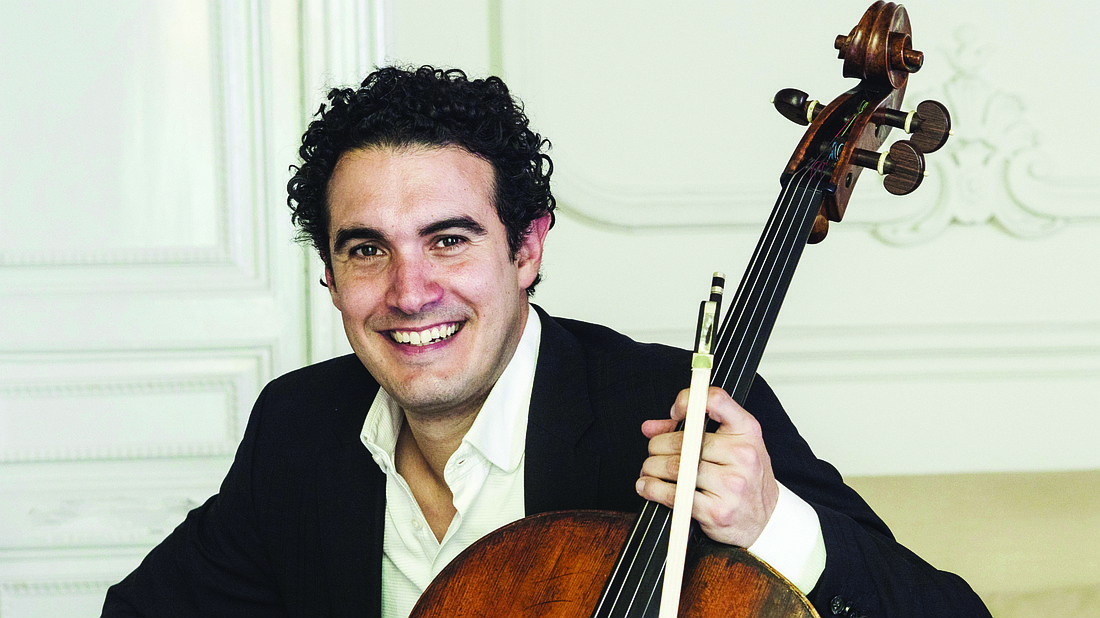- April 2, 2025
-
-
Loading

Anu Tali and the Sarasota Orchestra opened the Masterworks series with outstanding performances of two massive works: Antonin Dvorak’s Cello Concerto with soloist Adolfo Gutièrrez Arenas and Gustav Mahler’s 5th Symphony, heard in Sunday’s matinee performance.
Dvorak wrote his Cello Concerto during his American sojourn in the late 1800s, immersed in much of the intensive music scene of New York City. Mahler spent most of each year conducting the music of other composers and devoted his summers to composition, while isolated in the countryside. In hearing the music of other composers, often composers will unconsciously absorb the sounds, phrasing and musical vocabulary of their colleagues into their own writings, while still maintaining their own musical vocabulary and sound. That is why we all may hear a phrase, an orchestral voicing or sound that immediately reminds us of one of our other musical “friends,” yet the composer’s voice and imprint always shines forth.
The Mahler 5th is a real tour de force for any orchestra and the audience as well. It is just over an hour in length, in five movements, which are divided into three large sections by the composer. Tali and the Sarasota Orchestra presented us with an aural delight, ranging from the almost funereal march and progression of the first section, through the Sturm und Drang of the second section, to the elegiac beginning of the third section with its strongly contrapuntal finale. Throughout the symphony one can hear traces or hints of Richard Strauss and Richard Wagner and a bit of Ludwig van Beethoven and Johann Sebastian Bach counterpoint, all beautifully translated into Mahler’s own musical voice and style.
Mahler demands a great deal of his players, and each section of the orchestra was outstanding in performance. A lot of this symphony features the wind section, which is greatly expanded, calling for four of each of the winds and seems to feature the brass, specifically the French horn section, which is expanded to six. Joshua Horne, co-principal horn, was featured in the symphony’s second section, playing with beautiful tone and phrasing.
Derek Lockhart, acting co-principal trumpet, began the symphony with a solo fanfare, which recurred throughout the piece, often accompanied by trombones and tuba. The expanded woodwind section, playing many times with bells raised in the air, added to the tonal palette, and the bassoons used a special extension at times to allow them to play lower than their normal limits. The Mahler 5th is a symphonic work that takes every instrument and player to his or her absolute limits, and Tali and her musicians were more than equal to the task.
Even when Mahler tries to sound cheerful, his music is somehow always bittersweet, and Tali and the orchestra conveyed these double sentiments with a beautiful tone quality and sound. The adagietto opening of the third section is really a gorgeous love song, with Mahler at his romantic Wagnerian best in melody, phrasing and climaxes, and it was beautifully played by the strings and harpist Katherine Siochi.
The Dvorak Cello Concerto featured Adolfo Gutièrrez Arenas in a most musical and sensitive performance of this great work for cello and orchestra. Challenging for both cello and orchestra, this concerto is not as episodic as many of Dvorak’s works, but takes a small rhythmic motive and develops it throughout all three movements, with whispers of Robert Schumann in the writing for French horns and more than a little homage to Brahms in the slow movement. Arenas and his cello produce a sumptuous sound, and his phrasing and technique are impeccable. It’s unfortunate that his playing was at times almost inaudible, due more to an acoustically dead spot on the stage of Van Wezel than an overbalance on the part of the orchestra.
These opening concerts were dedicated to the memory of violinist Anne Boblin, a member of the Sarasota Orchestra for 20 years, who lost her battle with cancer this past September. And a fitting tribute it was, as well as an outstanding musical event for all present. It was a concert to be remembered.